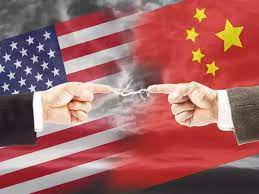APA-Harare (Zimbabwe) As Zambia struggles to pay off its foreign debt, many other African countries must be closely watching and copiously taking down notes of the important lessons to be learnt from what is panning out as another of the turf wars between Washington and Beijing over influence in Africa.
The West has been accusing China of engaging in so-called “debt-trap diplomacy” in Africa. This narrative suggests that China’s loans to African countries are predatory and designed to trap them in debt, giving China control over their economies and resources.
Using this narrative to counter China’s growing influence in Africa, the West has lately been warning African countries to be cautious when dealing with China, portraying the Asian giant as a heartless lender not willing to negotiate loans given to Africans.
However, many experts believe that the debt-trap diplomacy narrative is exaggerated and misleading.
They argue that China’s loans to African countries are not significantly different from those of the West and that Chinese loans often come with fewer strings attached.
The use of the debt-trap diplomacy narrative by the West can be seen as part of a broader turf war with China over control of Africa.
“All this noise about China’s debt-trap diplomacy is part of a wider scheme by the West in its turf war against China over its growing influence in Africa. The idea is to make African countries feel like they are being short-changed by China so that they revert to the likes of the World Bank and IMF (International Monetary Fund) for financial support,” said Harare-based political analyst Donald Porusingazi.
He said many African countries welcome Chinese investments and loans as they provide vital infrastructure and development funding that they might not get from Western sources.
Western governments fear that China’s growing influence in Africa will undermine their own interests and strategic goals in the continent.
The West has feasted on Zambia’s default on its debt, most of which is owed to China.
The southern African country has over the past two decades borrowed more than US$10 billion from Chinese state-owned banks to build dams, railways and roads.
While the loans boosted its economy, foreign interest payments have ballooned, chewing up most of the Lusaka government’s revenue and leaving little for other pressing national needs such as healthcare.
Contrary to the narrative that it is a ruthless lender, China announced in 2021 that it was exempting African least developed countries from debt incurred in the form of interest-free Chinese government loans. This saw it forgiving 23 loans for 17 African countries.
According to Porusingazi, aid-dependent Africa should be careful as she once again finds herself caught up between global heavyweights.
“There are several key lessons to be drawn from Zambia’s experience. First, African countries need to be careful about taking on too much debt, especially from a single lender.”
While Chinese loans may be attractive in the short term, they can lead to long-term financial problems if not managed carefully, he warned.
“Second, African countries need to be transparent about their borrowing and lending practices. This includes providing clear information about the terms of loans, as well as the purposes for which funds are being used,” the analyst said.
Transparency would help to build trust with lenders and ensure that African countries are not taken advantage of, he said.
“Finally and perhaps more importantly, Africa once again finds itself playing kingmaker in the unfolding global political contest. It’s up to the continent to make the best out of the unfolding drama.”
Africa has recently found itself playing kingmaker in the political theatre involving the United States and Russia over the latter’s war in Ukraine.
Both sides have intensified shuttle diplomacy over the past year in their attempts to assert their influence over Africa, a key source of raw materials.
“The biggest opportunity for Africa out of all this is that it should grab this as its best chance to claim its seat at the global table. As the saying goes, ‘if you are not at the table, you are most likely the menu’,” said Porusingazi.
JN/APA


